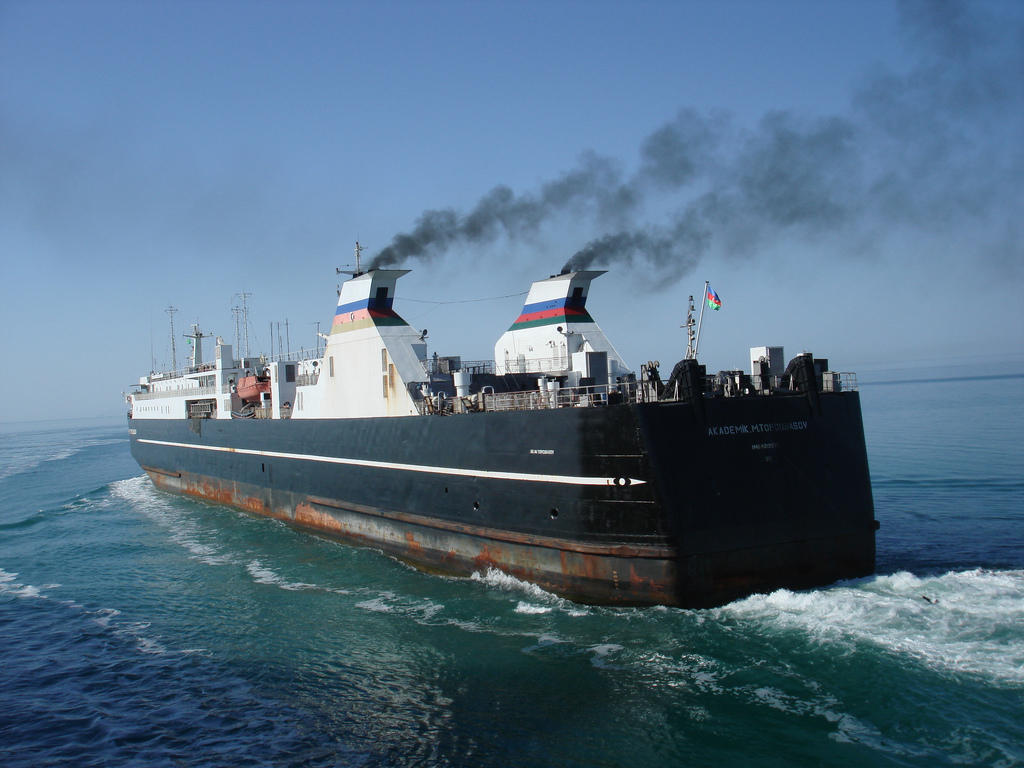Volume of oil tanker transportation in Caspian Sea to increase

By Sara Israfilbayova
Baku, which is the starting point of all sea routes of Azerbaijan, is the largest port of the Caspian Sea.
Azerbaijan has access to the oceans along the Caspian Sea-Volga-Volga-Don Canal-the Don-Azov Sea. Along with the Volga-Don Canal, the Azerbaijani vessels have the opportunity to enter the world ocean through the Volga-Baltic and White Sea-Baltic canals.
Moreover, oil tankers are being transported through the Caspian Sea.
Azerbaijan’s Caspian Shipping Company CJSC and the Baku Sea Trade Port play a special role in the water transport of Azerbaijan.
Caspian Shipping Company expects growth of oil tanker transportation in the Caspian Sea in the coming years.
Tariyel Mirzoyev, the company’s Head of Strategic Development and Investment Projects Department said that the further development of the tanker fleet in the Caspian Sea largely depends on the choice of the route by carriers.
“Oil production in Kazakhstan and Turkmenistan will grow in the next three to seven years. The Baku-Tbilisi-Ceyhan, Baku-Supsa and Baku-Novorossiysk oil pipelines have sufficient capacity to accept additional volumes, and these free capacities will grow in the coming years. All this makes it possible to talk about the great prospects for further growth of the tanker fleet in the Caspian Sea,” Mirzoyev said.
He added that there is also a high potential for the construction of larger tankers.
The Caspian Sea Shipping Company CJSC, along with the transport fleet, also includes a specialized fleet and shipyards.
The transport fleet consists of 51 vessels, including 20 tankers, 13 ferries, 15 universal dry cargo vessels, 2 Ro-Ro vessels, as well as 1 technical vessel and 1 floating workshop.
The specialized fleet includes 210 vessels, including 20 cranes, 25 towing and supplying vehicles, 26 passenger, two pipe-laying, six fire-fighting, seven engineering-geological, two diving and 88 auxiliary vessels.
The Caspian Sea Shipping Company of Azerbaijan, which acts as a liaison in the Transport Corridor Europe-Caucasus-Asia (TRACECA), simultaneously with the transportation of cargo and passengers in the Trans-Caspian direction, also performs work to fully ensure the processes of oil and gas production at sea.
This activity has a rich history. The development of the shipping industry in Azerbaijan is closely connected with the formation and progress of the oil industry. In the 19th century, the sharp increase in oil production in Baku gave a huge impetus to the development of shipping in the Caspian Sea, and as a result, there was a need to create fundamentally new floating facilities for the transportation of oil and oil products.
As a main part of economic infrastructure of Azerbaijan the maritime transport take leading role in social economic development of country. In comparison with other transport means the maritime transport has an advantage as a value in carriage of goods. In considering that 80 percent of world trade performed through maritime transport, Azerbaijan’s competitiveness of maritime transport and sustainable development are ensured by preparing action plan covering the strategic targets and priority direction.
---
Sara Israfilbayova is AzerNews’ staff journalist, follow her on Twitter: @Sara_999Is
Follow us on Twitter @AzerNewsAz
Here we are to serve you with news right now. It does not cost much, but worth your attention.
Choose to support open, independent, quality journalism and subscribe on a monthly basis.
By subscribing to our online newspaper, you can have full digital access to all news, analysis, and much more.
You can also follow AzerNEWS on Twitter @AzerNewsAz or Facebook @AzerNewsNewspaper
Thank you!
